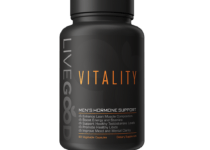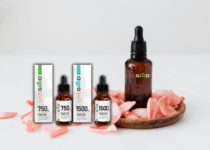The LiveGood Supplements You Can’t Afford to Ignore
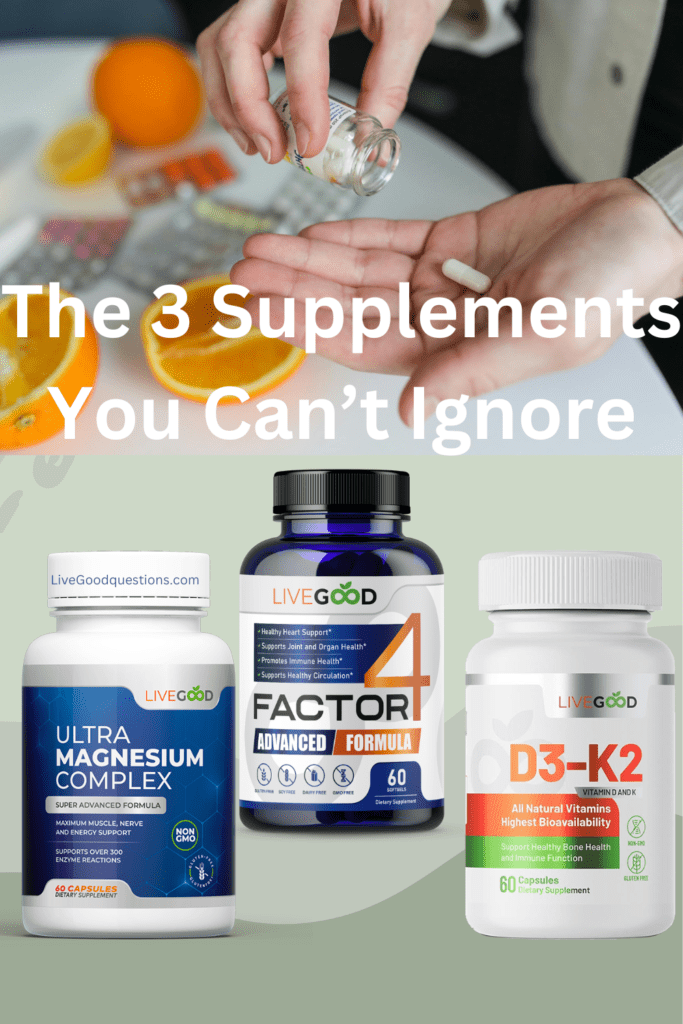
Improve your health with the top three foundational supplements recommended by Dr. Boz: Omega-3, magnesium, and vitamin D. Find out why and how to implement these simple but powerful changes for your better health!
The most recent video by Dr. Annette Bosworth, known as Dr. Boz, carries the title “These 3 supplements are a no-brainer.” In it, she discusses three essential supplements that can greatly benefit our health. She bases her remarks on good clinical practices and the experience of working directly with patients. Dr. Boz makes it clear that she’s not advising it as a lazy, one-size-fits-all kind of thing. … At the same time, the video serves as a wake-up call for those who haven’t yet realized the crucial role supplements can play in their health and well-being.
Key Points
- Omega-3 supplements are essential for heart, eye, and brain health.
- Muscle function, mental health, and sleep quality all hinge on sufficient magnesium levels, but the vast majority of us are falling short.
- Vitamin D acts as a hormone that bolsters brain function and immune system performance, with ideal levels falling between 50 and 100.
The Importance of LiveGood Omega-3 Supplements
Dr. Boz starts her conversation about Omega-3 fatty acids, which she deems one of the most important supplements for general health and wellness. She emphasizes that most Americans are deficient in Omega-3, with an eyebrow-raising 95% not reaching the ideal level. The ideal Omega-3 index should be above 8, but many people find themselves in the lower ranges, which could be contributing to a host of health problems. Omega-3s are indeed linked to improved longevity and are especially important for heart, eye, and brain health.
A problem that arises with taking Omega-3 supplements is the actual intake of the ingredient itself. When most people think of Omega-3, they think of fish oil, but unfortunately, many of us have anatomical arrangements that make processing fish oil extremely uncomfortable and downright unpleasant. Burping and renewing the fishy taste in the mouth are common side effects. Dr. Boz recommends triglyceride forms of Omega-3 (from fish) instead. They tend to be less unpleasant and also more “bioavailable.” If you don’t like sardines but still want to reap the health benefits, high-quality fish oil supplements are a decent alternative.
Personally, I take the LiveGood Factor 4 fish oil supplement and there is no after taste, nor do I burp up any fish tastes or smells. LiveGood really did do a great job with this supplement. Not only do you get 890mg of fish oil but you also get 150mg of tumeric extract, 50mg of CoQ10 and 50mg of garlic extract. All in one pill.
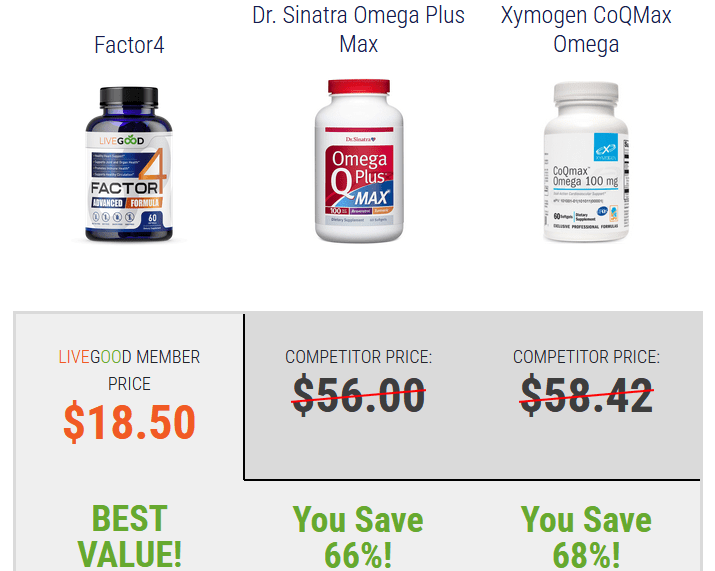
The Role of Magnesium in Health
Following vitamin D on Dr. Boz’s list of essential nutrients for health is magnesium. A mineral with many roles, magnesium serves as a key player in several bodily functions. For one, it helps carry out the instructions given by DNA and RNA. It is also vital for the generation of energy. And not just any energy, but the kind of energy our cells can actually use to power processes within them—like muscle contraction and brain signaling. … Dr. Boz points out that a lot of people are not aware of how important magnesium is to their health.
Dr. Boz recounts her own use of magnesium as a supplement, particularly during fasting states. She emphasizes that fasting can deplete magnesium, which can lead to a number of undesirable symptoms. Her overall recommendation is to use magnesium as a regular supplement, especially when one is practicing fasting, in order to keep levels within the body at a desirable amount.
Dr. Boz is a proponent of Magnesium L-Threonate, one of the most expensive forms of magnesium, as one that is particularly effective. When talking about less expensive alternatives, she highlights the fact that those options also often work, even if they aren’t as effective. Regardless, Dr. Boz makes a strong case for adding magnesium to a body regimen while using the fasting practice.
Personally I take the LiveGood Ultra Magnesium Complex. This supplement is a one, two punch of 2 kinds of magnesium. Magnesium Glycinate and Magnesium Gluconate. Both are very bioavailable forms for your body. This is a great value and I’m sure you will feel the difference. As always, you can always take advantage of the 90 day money back guarantee if you are not happy. Learn more about magnesium!
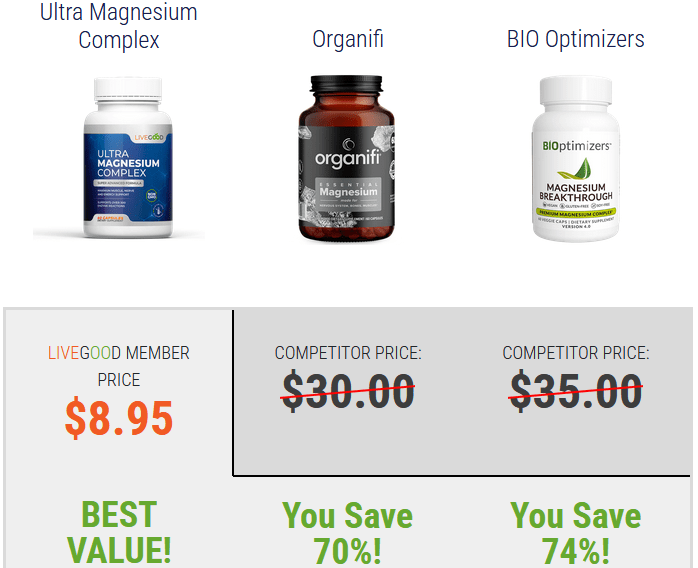
The Significance of Vitamin D
The last supplement discussed by Dr. Boz is vitamin D, which she classifies not just as a vitamin but as a hormone. Essential as it is for numerous bodily functions, vitamin D, she says, is especially crucial for “brain performance, immune function, and general mood. Dr. Boz points out that, according to the most recent research, keeping one’s vitamin D level above 50 ng/mL is necessary not just for “optimal brain function” and mood but also for energy. She shares her own struggles with keeping her vitamin D levels up, noting that even living in sunny Florida doesn’t guarantee adequate levels without proper supplementation.
Dr. Boz explains the workings of vitamin D in our bodies. When it comes to cellular function, vitamin D acts on a much more basic level than most other vitamins. Not only does it help us absorb calcium, which is crucial for bone health, but it also enters our cells and interacts with our genes, turning them on or off in a process called transcription.
What vitamin D does, and what most people don’t realize, is that it plays a fundamental role in the function of all of our cells—and especially those cells that are in the key relay stations of our body. Whether in the brain, heart, or immune system, vitamin D ensures that the cells are doing what they’re supposed to do, and doing it efficiently. She suggests that the ideal range for vitamin D is between 50 and 100 ng/mL, with some individuals needing to push beyond 70 ng/mL when recovering from illness.
Personally, I take LiveGood Vitamin D with K2. Having the K2 included has been proven to be more beneficial than just vitamin D alone. Check out this post for a comprehensive guide on Vitamin D with K2.
Vitamins K2 and D complement each other in promoting better bone and cardiovascular health. Vitamin D has long been recognized for its vital role in ensuring that calcium is absorbed into the body. Without adequate D, our bodies can’t draw sufficient amounts of calcium from our diets. But it has only recently gained wider acknowledgment that calcium can, and in some cases does, get funneled to the wrong places if vitamin K2 is not present in adequate amounts.
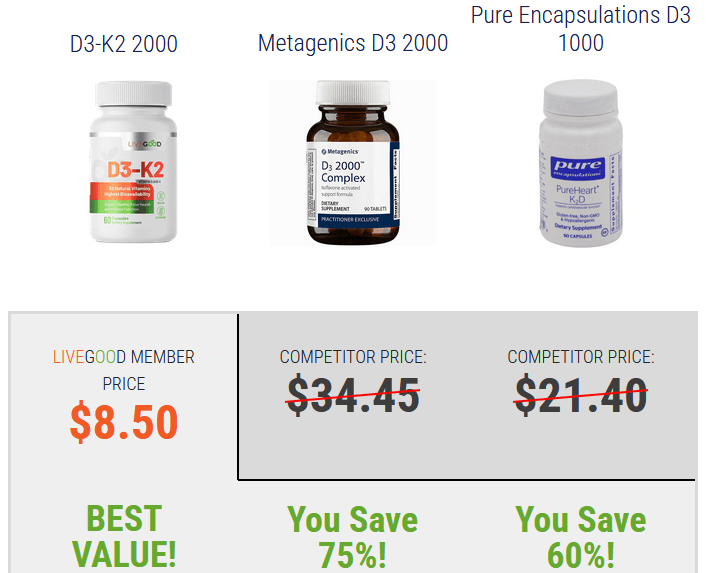
Final Thoughts on Supplementation
The video by Dr. Boz is an excellent vehicle for the communication of the world that she works in. It is not a world in which optimal health is the norm. The personal stories and clinical insights that she shares make it easy for us to understand what the main thrust of her message is: It is highly likely that you are not getting enough of certain vital nutrients. And even if you think you are, you really should be getting tested.
She has picked out three supplements to spotlight—Omega-3, magnesium, and vitamin D. They have the backing of common usage; more importantly, they have the backing of science. In her own life, the good doctor has used these supplements as a health tool. And as we’ve said several times before, sometimes the right health tools are necessary when trying to achieve a certain goal. Her main message seems to be that if you lack knowledge, the power to change your situation is a lot harder. And if you possess both knowledge and power, it definitely helps when you also have the right supplements.
Improving mental clarity, enhancing physical performance, or even just maintaining overall health are goals many people have. Achieving these goals can be done easily if you follow the advice of Dr. Boz. She provides not only the “how” but also the “why” of achieving these results. Her work centers on something we all have in common: the way we are wired. By understanding and addressing common deficiencies, we can be much more proactive about achieving a healthier future.

